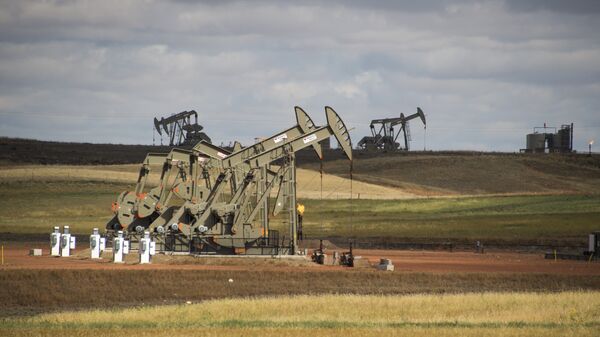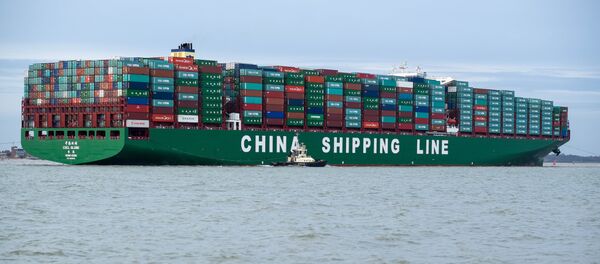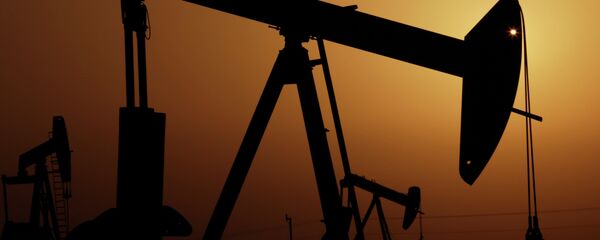The decision by US President Donald Trump to kill off the Trans-Pacific Partnership (TPP) agreement with large public support was a consequence of long-term US economic trends, director of research and forecasting firm Analytical Credit Rating Agency (ACRA) Nataliya Porokhova told RIA Novosti.
"The rejection of TPP was widely expected – it was a pre-election promise that is relatively easy to fulfil, because the TPP hadn't in fact come into force yet," the analyst said.
US crude oil production rose every year between 2008 and 2015, reversing a decades-long steady decrease in production. In 2015 US crude production reached 9.42 million barrels per day, the highest level since 1972.
Falling energy prices led to a corresponding increase in industrial production and greater competition for markets despite slow global growth, Porokhova explained.
"The development of shale oil led to a sharp drop in oil prices, not only because of a growing market surplus but also fundamental changes in trade flows and the necessity of suppliers to compete for new markets to replace the decline in US imports (in 2013-2014 the US not only increased its own oil production but also increased oil imports from Canada."
The increasing popularity of protectionism in the US is part of a global tendency likewise stimulated by low oil prices, Porokhova explained.
"Slower economic growth increases competition for markets and stimulates protective measures. The high price of oil, the main transport fuel, acts as a kind of 'protective barrier' because high transport costs increase the cost of production for importers and 'protect' domestic producers. Accordingly, a fall in the price of oil leads to a decrease in transportation costs and enables greater access to markets, and therefore encourages protectionism."
Never miss a story again — sign up to our Telegram channel and we'll keep you up to speed!



